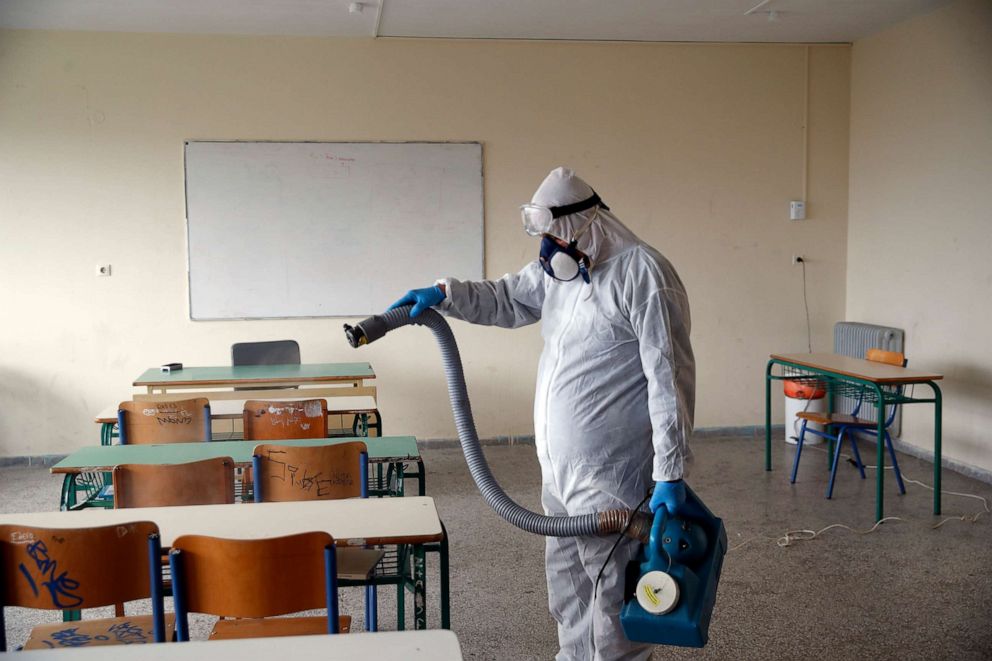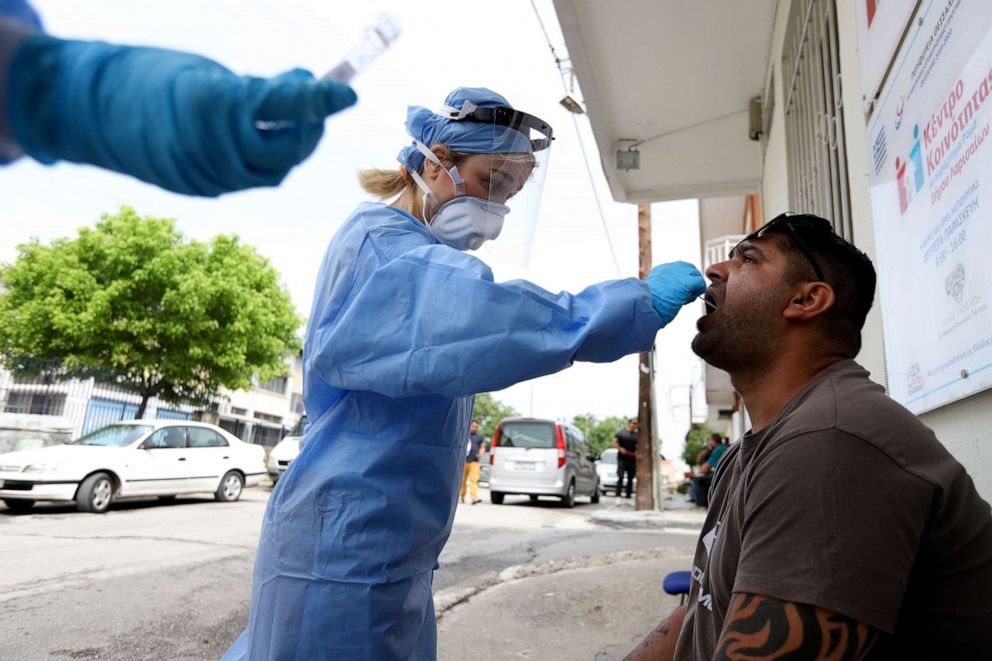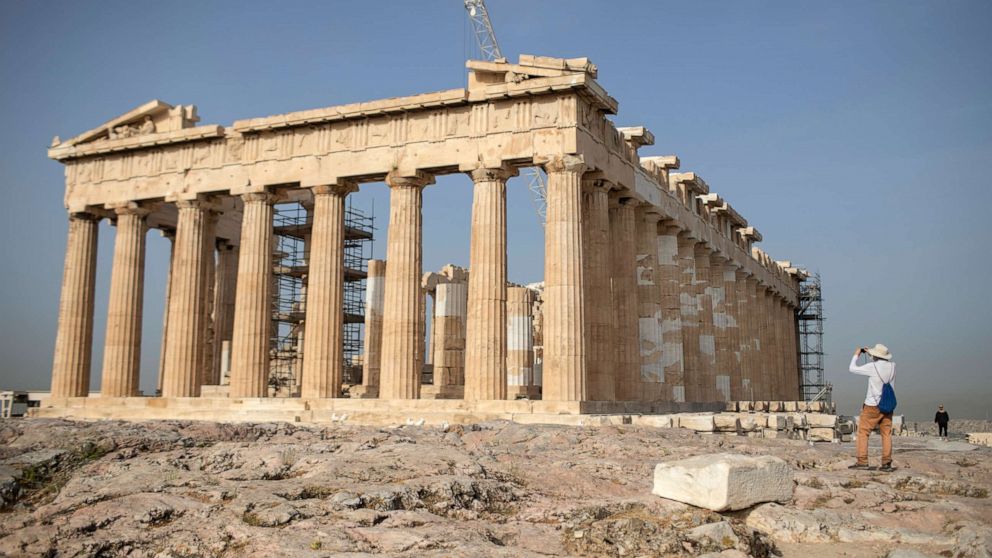Unlikely underdog Greece is beating coronavirus. But like all ancient heroes, the test isn’t over: Reporter's notebook

ATHENS -- For weeks, only the cats have been able to enjoy watching the sunset from the Parthenon.
They didn't look very pleased to have to share the honor tonight. Greece's culture minister, Lina Mendoni, had just taken me on a private tour, the day before it reopens.
"They will have to learn to share it again," she said with a smile as music from street performers on the avenue below floated up to join us. A tour from an archaeologist like Mendoni was certainly a treat for a myth buff like me. I found it hard to control my excitement.
"You can see over there," she said, pointing to a temple below. "This is the temple to Hephaestus ..."
"The God who forged Zeus' thunderbolts!" I interjected, like an over-excited (possibly slightly annoying) school child.
"Yes," she replied, slightly bemused.
That symbols of Greece's ancient past are able to welcome visitors again is testament so far to what could be described as the modern miracle of this country's coronavirus experience. A nation of around 11 million people has seen just 163 deaths and 2,800 cases. Officials say not a single health professional died. After the humiliation of the financial crisis and the economic and civil turmoil this country went through, this is a proud moment for Greeks.
The debate over the value of international comparisons has been raging for some time. But it's clear by now that some countries have faired better than others. The question is: how has Greece done it?
A crucial difference was border checks. Since March 20, every single person coming into Greece has been tested at the airport. The process is quick and efficient: you are escorted off the plane and asked to fill in your details on a tracing form. You are then taken into a booth in the arrivals lounge, where officials in PPE meet you to take a throat swab. After collecting your luggage, you board a bus which takes you to a specially designated hotel where you must remain until results come through the next day. If you are negative, you can go home, but you must still quarantine for 14 days. Positive cases are told to stay in the hotel and are given medical assistance. Everything is policed.

Since only Greeks have been allowed into the country during this time, they've had about 400 passengers a day, and so the process has been manageable. Compare this to Britain's 15,000 passengers a day from all across the EU. They have been allowed to come into the U.K. without any check of any kind.
Greece's success is also, of course, down to many factors that have nothing to do with government policy. Unlike Milan, there is no manufacturing here, no link with China. Greeks don't have a city anything close to a London or New York; maybe a population spread across islands was better protected? Maybe the heat saved it? Who knows. But with an elderly population and a Mediterranean culture with sharing at its heart, they had all the ingredients for disaster and yet escaped unscathed.
It was truly the underdog, fighting against the odds. But like all Greek heroes, this country will not be tested just once. It must find a way to open up safely and revive an economy that relies so heavily on tourism. After a summer languishing in lockdown, travelers from around the world could cause a tidal wave of infection -- especially on the islands, with their older populations. Greece has also not carried out widespread testing inside the country, which may hinder faster reopening. And at the beach today, we saw no social distancing of any kind, as thousands headed out to enjoy the sea in a 104 degree heat wave.
So they are careful not to trumpet their success too loudly. No monuments to a vanquished coronavirus will be going up anytime soon.

In the end, it may have been Greece's experience of having to go it alone that has saved it so far. Europe has long prided itself on cooperation, but the battle against this virus has really tested that principle, and as confusion gripped the continent in the early days of the outbreak, competition for ventilators, PPE and other life-saving equipment ramped up. Here, the scars of the financial crisis run deep, with a palpable sense that Europe hung Greece out to dry. So they weren't going to wait for help.
I asked the minister about this and of course, she didn't agree in so many words. "Orimotis," she replied, happy to entertain me with some more Greek. I get the sense that they've learned some lessons about who to trust.
The Parthenon was built in honor of the Goddess Athena, who personified wisdom. It is too early for any country to really know what went well, or what went badly. But it feels like there has been wise leadership here. And for once, Greece gets to set the example.




